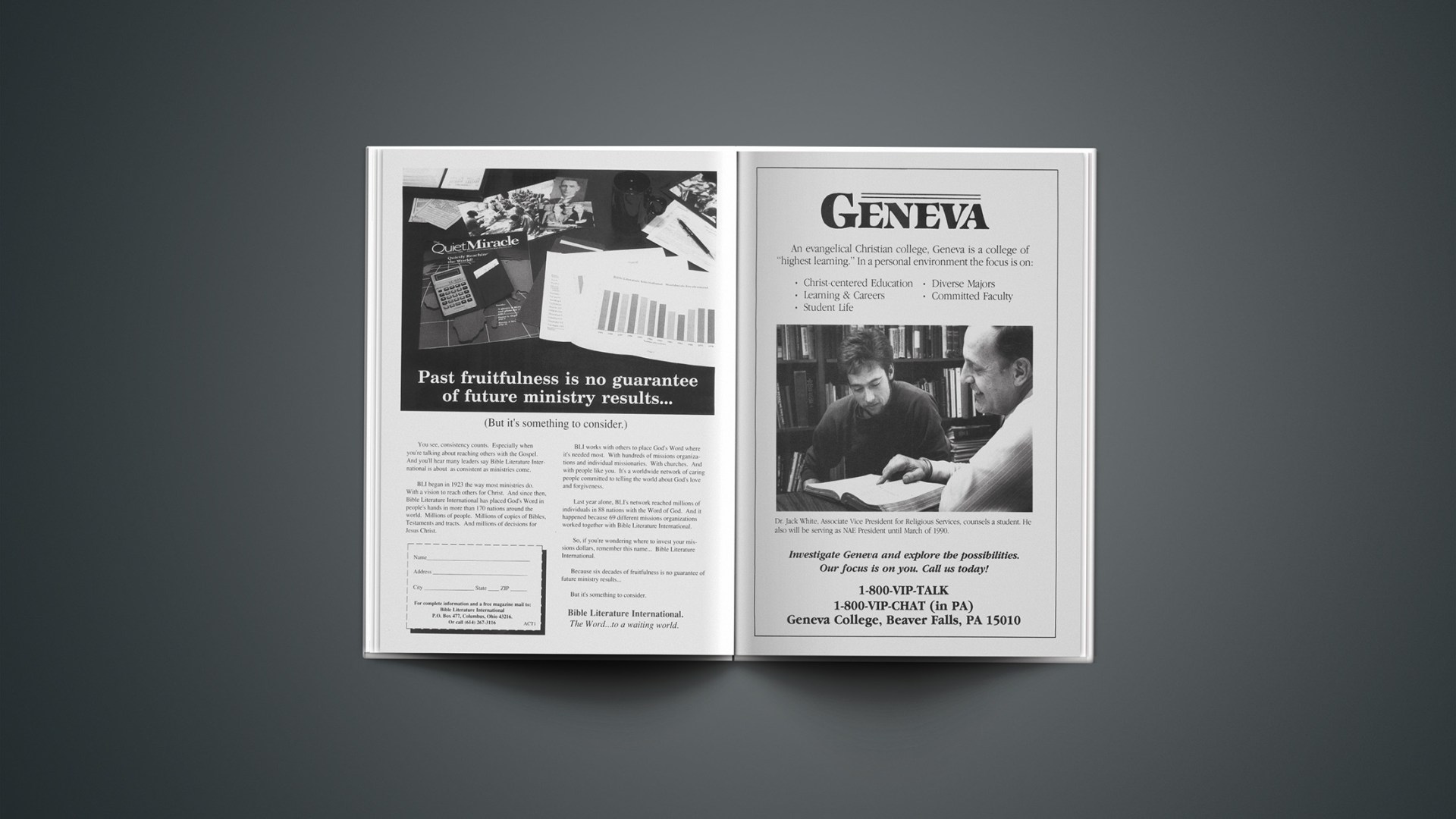Among the difficulties of international business travel is finding a good translator.
Executive editor Terry Muck has worked with translators in Sri Lanka (for his doctoral research), Egypt (for an article on the state of Christianity in that country), and the Soviet Union (for this issue’s cover story).
In Egypt Terry was halfway through delivering a sermon when someone in the congregation who knew both Arabic and English stopped the service. She pointed out that the translator was applying Terry’s insights to a different psalm from the one Terry was expounding.
And while listening to Luis Palau in the Soviet Union, Terry asked his own translator how the evangelist’s translator was conveying certain frequent phrases, such as “My dear Russian friends.”
“Well, he is using words I wouldn’t use,” Terry’s translator tactfully replied.
Every language has its nuances, offering the translator options in shades of meaning. So every translation is by nature an approximation. Even a President of the United States can run into pitfalls, as Jimmy Carter did when his translator conveyed a bit more passion than the President intended by saying he wanted to understand the Polish peoples’ desires for the future.
“The imprecision of translation always amazes me,” says Terry. “And considering the difficulty of getting the nuances right, it is a good thing Palau keeps his gospel message simple.”
DAVID NEFF, Senior Associate Editor










